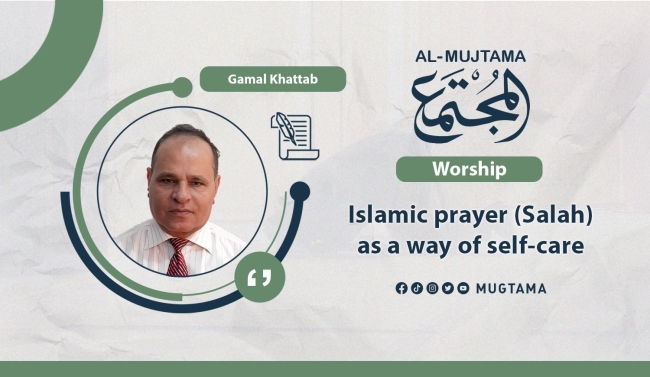Self-care is the practice of taking care of one's physical, mental, and emotional well-being. It can include activities such as eating well, exercising, sleeping, meditating, relaxing, socializing, pursuing hobbies and interests, and setting boundaries. Self-care is not selfish or indulgent; it is essential for maintaining a healthy and balanced life.
The significance of self-care in the journey of self-development
Self-care is also important for self-development, which is the process of growing and improving oneself in various aspects such as skills, knowledge, values, attitudes, goals, and potentials. Self-development can help one achieve personal and professional success, happiness, and fulfillment.
But how does self-care relate to self-development? Here are some ways:
- Self-care helps one cope with stress and challenges. Self-development often involves facing difficulties, obstacles and uncertainties that can cause stress and anxiety. By practicing self-care, one can reduce the negative effects of stress on one's health and performance and increase one's resilience and adaptability.
- Self-care boosts one's confidence and self-esteem. Self-development requires one to have a positive and realistic view of oneself and one's abilities. By practicing self-care, one can enhance one's self-image and self-worth, and feel more confident and capable of achieving one's goals.
- Self-care fosters creativity and innovation. Self-development involves finding new ways of thinking and doing things that can lead to personal and professional growth. By practicing self-care, one can stimulate one's imagination and curiosity, and unleash one's creative potential.
- Self-care supports learning and growth. Self-development depends on acquiring new knowledge and skills that can expand one's horizons and opportunities. By practicing self-care, one can improve one's concentration, memory, and retention, and facilitate one's learning process.
- Self-care nurtures relationships and connections. Self-development benefits from having supportive and meaningful relationships with others who can offer feedback, guidance, encouragement, and inspiration. By practicing self-care, one can cultivate one's social skills, empathy, and compassion, and build stronger bonds with others.
Self-care practices
There are many self-care practices that can help you take care of your physical and emotional needs. Some of them are:
- Live healthy: eat healthy foods, get enough sleep, exercise regularly, and avoid drugs and alcohol.
- Practice good hygiene: keep yourself clean and groomed.
- See friends: build your sense of belonging and support.
- Do something you enjoy: pursue your hobbies and interests.
- Find ways to relax: meditate, pray, get a massage, take a bath or walk in nature.
- Make sleep a priority: get enough rest and follow a regular sleep schedule.
- Manage stress: identify and cope with your stressors in healthy ways.
- Learn new things: expand your knowledge and skills.
- Set goals: work towards your personal and professional aspirations.
- Be kind to yourself: practice positive self-talk and affirmations.
- Seek help: reach out to a professional or a trusted person when you need support.
- Practice gratitude: appreciate what you have and express thanks to others.
Islamic prayer (Salah) as a way of self-care practices
Salah or Islamic prayer is one of the five pillars of Islam and a way of self-care practices for Muslims. Salah refers to five prayers that Muslims perform every day at specific times. Some of the benefits of Salah are:
- It is a daily communication with Allah, the Creator and Sustainer of everything.
- It encourages self-discipline and keeps Muslims in close contact with Allah.
- It gives them the strength to remain committed to living a good and purposeful life.
- It enhances mindfulness, which is the awareness and attention to the present moment.
- It improves mental health by reducing stress, anxiety, and depression, and increasing happiness, satisfaction and well-being.
- It is a way of showing gratitude to Allah for the precious gift of health and wellness.
- It is a way of following the Sunnah, which is the example and teachings of Prophet Muhammad (peace be upon him).
In conclusion, self-care is not only a way of taking care of oneself, but also a way of enhancing oneself. By practicing self-care regularly, one can optimize one's physical, mental and emotional well-being, and accelerate one's journey of self-development. Therefore, self-care is not a luxury or a distraction; it is a necessity and an investment for oneself.
----------
Source:
(1) Taking Good Care of Yourself | Mental Health America. https://www.mhanational.org/taking-good-care-yourself.
(2) 5 Self-Care Practices for Every Area of Your Life - Verywell Mind. https://www.verywellmind.com/self-care-strategies-overall-stress-reduction-3144729.
(3) Self-Care: 12 Ways to Take Better Care of Yourself. https://www.psychologytoday.com/us/blog/click-here-happiness/201812/self-care-12-ways-take-better-care-yourself.
(4) How To Practice Self-Care: 10 Worksheets and 12 Ideas. https://positivepsychology.com/self-care-worksheets/.


